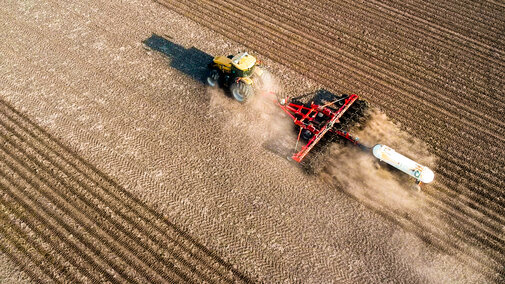As you consider how to increase efficiency and get more yield from the same or fewer inputs this year, on-farm research may be just the tool you need to get local data for sound decision-making.
Listen in as Mike Boehm, Vice Chancellor of the Institute of Agriculture and Natural Resources, discusses the importance of on-farm research in an interview with KRVN Radio this week.
What are Growers Testing?
Interested in viewing what other growers have studied? Could their findings help inform changes you’re considering? Studies dating back to 1990 are reported online in a searchable On-Farm Research Results Database. Search results can be sorted by crop, topic, irrigation status or year. You can also view complete research reports by year from 2013-2018.
In 2018 there were 15 grower studies on cover crops, several of them multi-year studies, 3 on equipment, 10 on growth promoters, 17 on various crop production practices, 1 on an insecticide seed treatment, and 32 on various aspects of fertility and soil management. Some of these were conducted on soil health demonstration farms as part of the Nebraska USDA NRCS Soil Health Initiative.
There’s still time to add an on-farm research component to your operation for this year. Nebraska Extension educators can help design a research plan to test your question in your field, using your equipment and planting practices. This ensures the findings apply directly to your particular situation.
If you haven’t planted yet, some studies like testing different planting populations are easy to design and conduct. Studies on planting speed, planting depth, or starter fertilizers also might still be planned. If you’re still applying fertilizer, you might test different N rates, N stabilizer products, or application methods. During the crop season, you might test foliar fungicide applications, irrigation management strategies, or interseeding cover crops.
Working with university educators to design a research project can help ensure the reliability of the results and application to your operation.
The Nebraska On-Farm Research Network (NOFRN) approaches topics that are critical to a farm’s productivity, profitability, and sustainability. If you’re interested in testing a product or practice this season, please contact your local Extension Educator or one of the NOFRN program coordinators as soon as possible. Coordinators are Nebraska Extension Educators Keith Glewen (402-624—8030, kglewen1@unl.edu) and Laura Thompson (402-245-2224, laura.thompson@unl.edu).
To view helpful information for getting started, visit https://cropwatch.unl.edu/farmresearch/getting-started. A number of NOFRN research protocols have already been developed for this year and Extension Educators can help develop a customized plan for your individual question.
If you already have an on-farm research project underway, consider sharing your plans with your local extension educator. Your educator can help identify additional information to be collected during the study to help ensure meaningful results.

